Understanding Maintenance vs. Warranty: What the New Car Warranty DOESN'T Pay For
The Core Misconception: Warranty vs. Maintenance
Let's start by clarifying the fundamental difference between a warranty and maintenance. A manufacturer's new car warranty is essentially a promise that the automaker will repair or replace parts that are defective in material or workmanship within a specified period or mileage. Think of it as insurance against manufacturing flaws. If a component fails prematurely due to how it was made or assembled, the warranty typically steps in.
Maintenance, on the other hand, refers to the regular, routine care your vehicle needs to operate correctly and efficiently. These are preventative services designed to keep your car in optimal condition, reduce wear, and avoid future breakdowns. It’s the equivalent of your annual health check-up or brushing your teeth – essential for long-term health, but not something your health insurance (warranty) typically covers for normal, preventative care.
Routine Maintenance: Your Ongoing Responsibility
This is perhaps the biggest area of misunderstanding. Your new car warranty will not cover the cost of routine maintenance services. These are your responsibility as the vehicle owner and are crucial for the longevity of your car and, ironically, often for the validity of your warranty itself. Skipping these services can sometimes lead to issues that the manufacturer might then refuse to cover under warranty, arguing that the problem arose from neglect rather than a defect.
Typical routine maintenance items not covered include:
- Oil Changes: Essential for engine lubrication and cooling.
- Tire Rotations and Balancing: Important for even wear and extended tire life.
- Fluid Checks and Replacements: Such as brake fluid, coolant, transmission fluid, and power steering fluid.
- Filter Replacements: Air filters (engine and cabin), fuel filters, and oil filters (part of an oil change).
- Spark Plug Replacement: Necessary for engine performance at recommended intervals.
- Belt and Hose Inspections/Replacements: These components degrade over time and need periodic checking.
Always consult your owner's manual for your vehicle's specific maintenance schedule. Adhering to it is paramount.
Wear and Tear Items: The Natural Course of Driving
As you drive your car, certain components are designed to wear out over time and with use. These 'wear and tear' items are generally not covered by your new car warranty because their degradation is a natural consequence of operation, not a manufacturing defect. The lifespan of these parts can vary greatly depending on your driving habits, road conditions, and environmental factors.
Common wear and tear items not covered include:
- Tires: While some manufacturers offer a separate tire warranty from the tire maker, the vehicle warranty won't cover normal tread wear or punctures.
- Brake Pads and Rotors: These friction components naturally wear down with braking.
- Wiper Blades: Exposure to elements and use causes them to deteriorate.
- Light Bulbs: Headlights, tail lights, interior lights – these have a finite lifespan.
- Clutch Components: For manual transmissions, the clutch plate and related parts wear out over time.
- Shock Absorbers and Struts: While some initial failure might be covered, their gradual reduction in effectiveness is considered wear.
If any of these items fail prematurely due to a proven manufacturing defect, there might be a rare exception, but for the most part, budget for their replacement as part of your car ownership.
Environmental Damage, Accidents, and Misuse
Your new car warranty is not an all-encompassing insurance policy. It explicitly excludes damage resulting from external factors, accidents, or improper use. These types of issues fall under your car insurance or are simply your responsibility.
What's typically not covered:
- Accidental Damage: Collisions, fender benders, or hitting a pothole.
- Environmental Factors: Damage from floods, hail, fires, severe weather, or acts of nature.
- Vandalism or Theft: Any damage incurred from criminal activity.
- Lack of Maintenance or Neglect: If a major component fails because you consistently ignored warning lights, failed to change oil, or didn't perform scheduled services, the warranty won't cover it. This is a critical point – a well-maintained service record is your best friend.
- Misuse or Abuse: Using the vehicle for racing, off-roading beyond its design, overloading, or any other activity not recommended by the manufacturer.
- Improper Fuel or Fluids: Using the wrong type of fuel (e.g., diesel in a gasoline engine) or non-approved fluids can void your warranty.
It's vital to remember that the warranty covers defects in the product, not how the product is used or what external forces act upon it.
Aftermarket Modifications and Unauthorized Repairs
While you generally have the right to modify your vehicle, be cautious. Installing aftermarket parts or having repairs done by non-certified technicians can potentially jeopardize your warranty coverage, especially if those modifications or repairs are deemed to have caused the issue at hand.
For example, if you install an aftermarket suspension kit and then experience a problem with your vehicle's steering components, the manufacturer might argue that the modification caused the failure and deny the warranty claim. Similarly, if you take your car to an independent shop for a major repair that could have been handled under warranty by an authorized dealer, and the repair is done incorrectly, the warranty might not cover subsequent issues stemming from that repair.
Always check your warranty terms regarding modifications and consider using OEM (Original Equipment Manufacturer) parts or manufacturer-approved alternatives, and authorized service centers, particularly for critical systems, to protect your coverage.
Understanding Extended Warranties and Service Plans
It's important to distinguish between your new car factory warranty and additional products like extended warranties or pre-paid maintenance plans. An extended warranty (often called a Vehicle Service Contract) is a separate agreement, purchased additionally, that covers repairs after your factory warranty expires. It can sometimes offer more comprehensive coverage, but it's not the same as your manufacturer's warranty.
Pre-paid maintenance plans are even more distinct. These plans, often offered by dealerships, cover the cost of your routine services (like oil changes and tire rotations) for a set period or mileage. They are essentially pre-paying for the maintenance your factory warranty doesn't cover. If you're looking to budget for your regular services, these can be a good option, but they are entirely separate from any defect-based warranty coverage.
Conclusion
The new car warranty is a fantastic benefit, offering crucial protection against manufacturing defects and giving you peace of mind. However, it's not a 'free pass' for all car-related expenses. Understanding the clear distinction between a manufacturer's warranty and routine maintenance, wear and tear, and external damage is key to being a responsible and savvy car owner. By diligently following your car's maintenance schedule and knowing the limits of your coverage, you can ensure your vehicle stays in top condition, protect your investment, and avoid unexpected repair bills that your warranty was never intended to cover. Read your owner's manual, keep service records, and ask questions – an informed owner is a happy owner!Where can I find my VIN?

Related Topics
- Decoding the Fine Print: Top 5 Things Your Acura Warranty DOES NOT Cover
- Is Off-Roading a Warranty Killer? Understanding Modifications and Exclusions on Your Jeep
- Protecting Your Hybrid Investment: Jeep 4xe Battery and Component Warranty Explained
- Don't Void Your Coverage! 5 Common Mistakes That Cancel Your Hyundai Warranty

